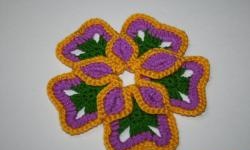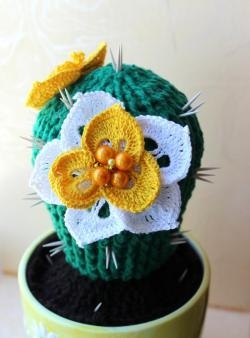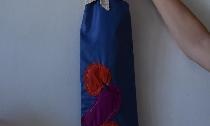Crochet violets
Delicate violets for true connoisseurs of indoor plants. Lovers of blooming flora and all kinds of miniature plants, as well as neat compositions from natural materials, will not only rejoice at the sight of this flower, but will admire this plant for a long time. Not only does it look beautiful, it requires absolutely no maintenance! And knitted violets always look fresh and aesthetically pleasing.
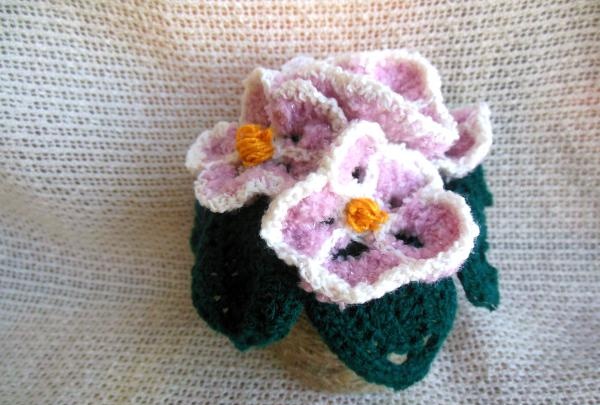
To create flowers you will need pink yarn with pieces of fur or fabric and white bouclé (curly) yarn. The leaves are knitted from ordinary even green thread. We knit all the details with a thin crochet hook (1.8-2.0 mm).
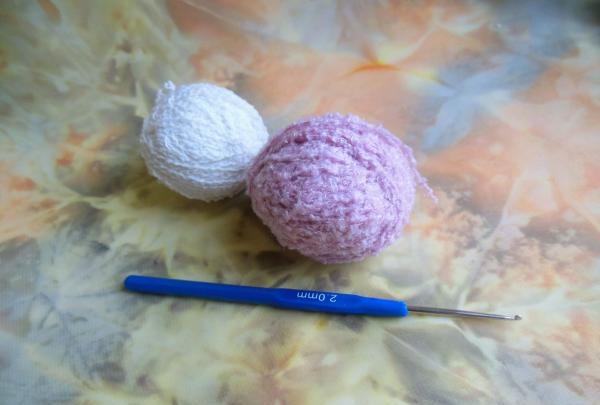
We collect 6 white air loops (in. p), which we collect into a ring. Using a white thread, we knit one circular row with single crochets (dc/dc) and include the pink thread in the work.
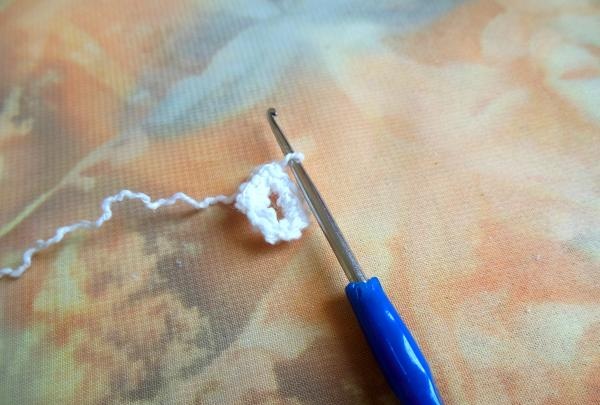
We use it to create chains from the 10th century. p, which we fasten in every second loop of the white base. There should be a total of 5 petals (half rings).
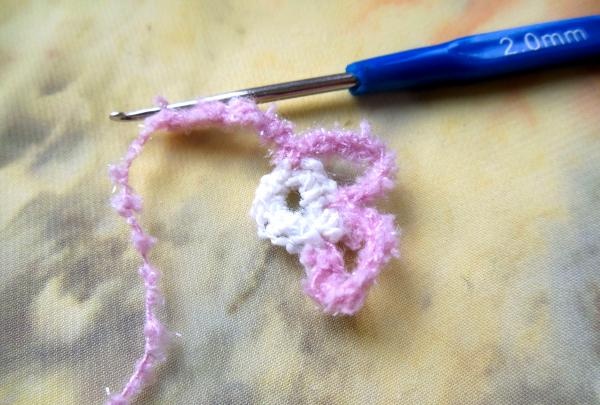
Then we tie these petals st./s 1 n, thereby giving our flower volume.
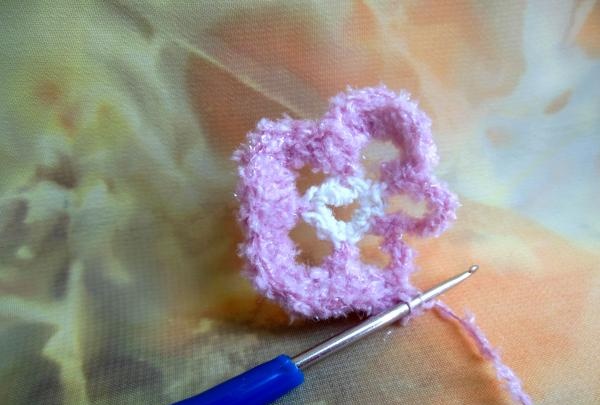
We “whiten” its outline with white stitches. n all over the circle and create the same veins between the petals.
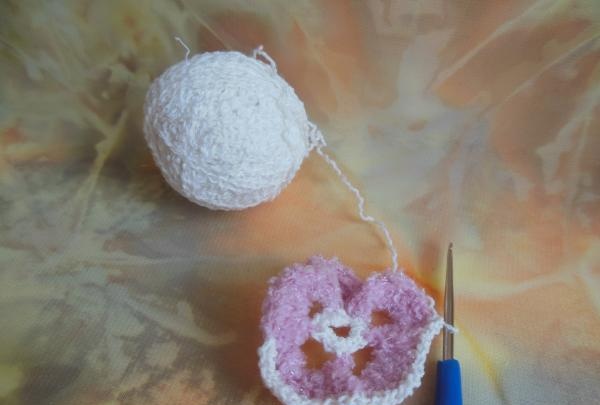
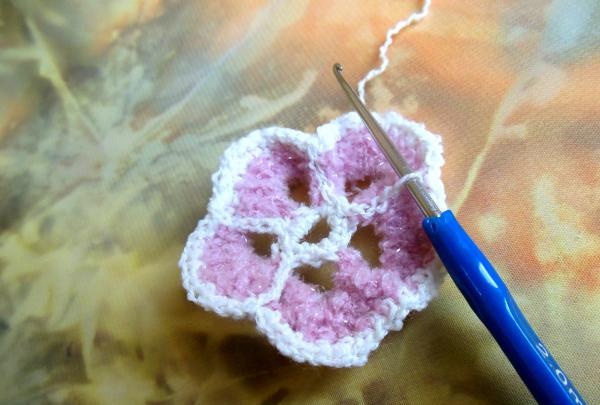
For a small pot, 3-5 inflorescences are enough.
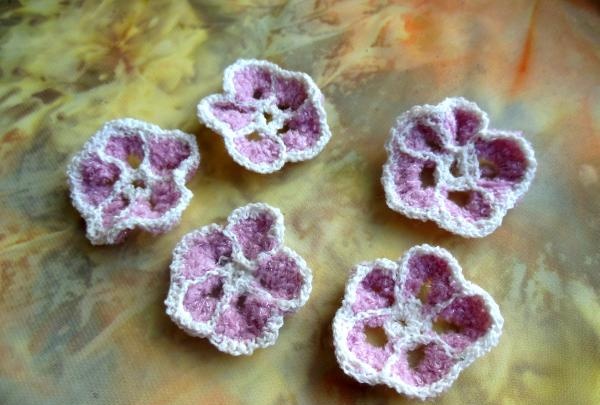
We knit the leaves from a regular chain, which we simply tie on all sides. Lateral transitions should be made smooth (do not jump sharply to the top or bottom side), otherwise the leaf will have the shape of a saucer.
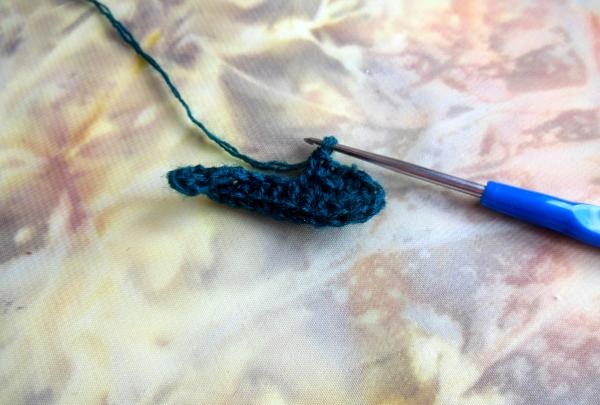
It will become even due to the constant increase in the side stitches (where we knit 4 stitches per 1 stitch from one loop at once).
In the second row, we make two small holes at the tip of the leaf using chains of 3 stitches. P.

At the end, we tie the entire sheet with a st. n.
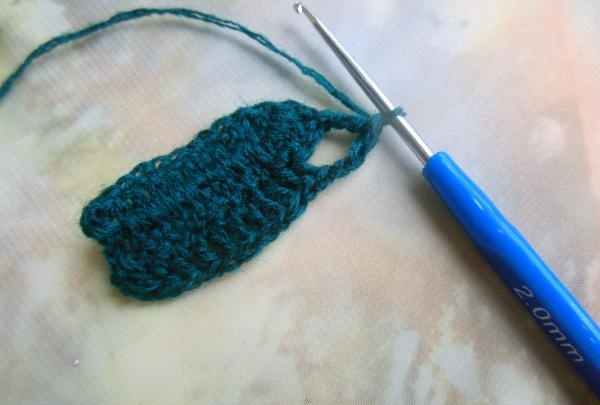
You will need more leaves than flowers. This composition includes 7 green blanks, but there may be more.
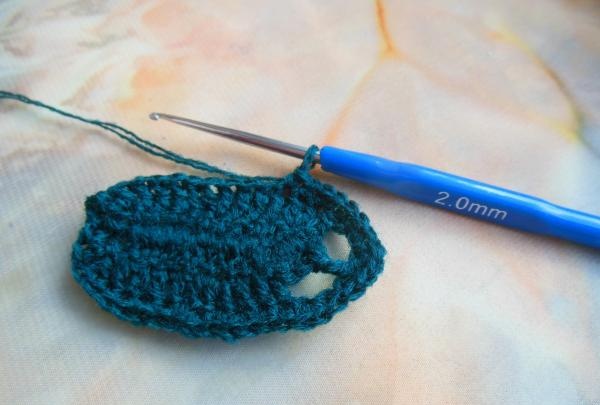
Now is the time to get your support materials. This:
• a jar of yoghurt or a small bottle with a flat bottom;
• alabaster;
• copper wire for stems (from 3 mm thick);
• polymer universal glue;
• jute twine;
• a small ball of yellow thread to create the center of the flowers.

We wind a small skein of yellow yarn and fasten it in the middle with a double twist of wire. Then we twist both ends together, making an elastic and stable stem.
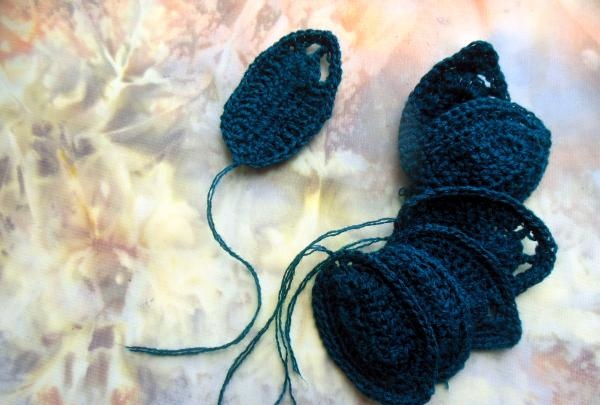
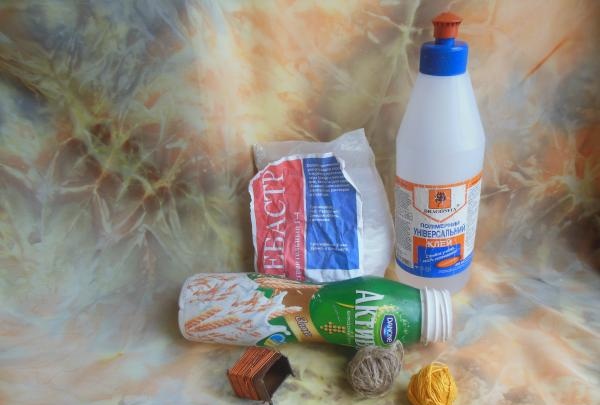
We thread this stem with a voluminous yellow end into the flower and completely “green it up”.
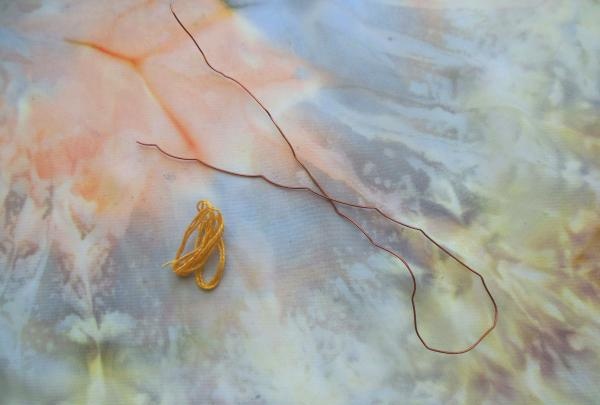
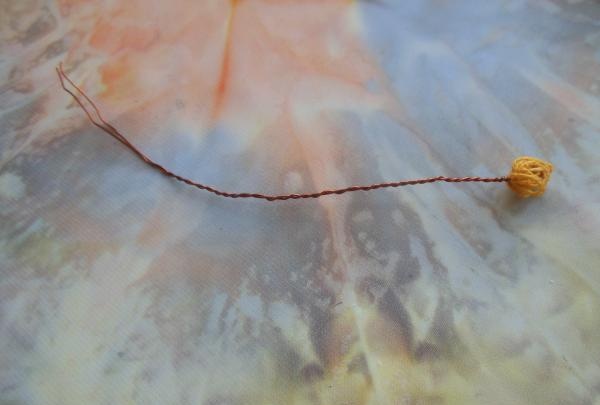
We also fasten the sheet to a wire, the ends of which are twisted together again.
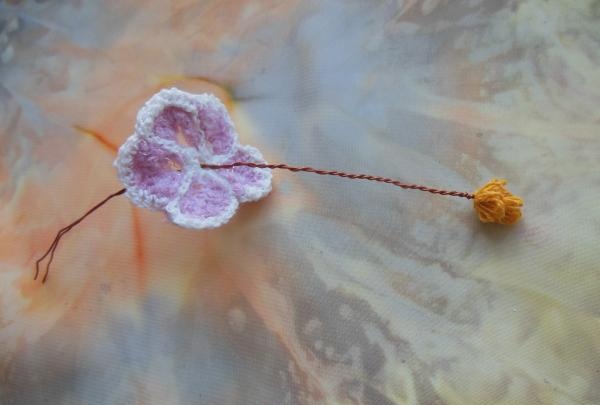
Each stem should be wrapped with green thread (as tightly as possible) and always until the very end.
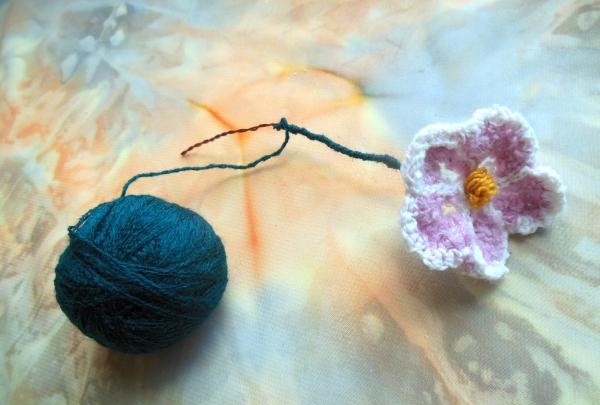
Then you need to prepare a pot to fill it with liquid alabaster and “plant” the flowers.
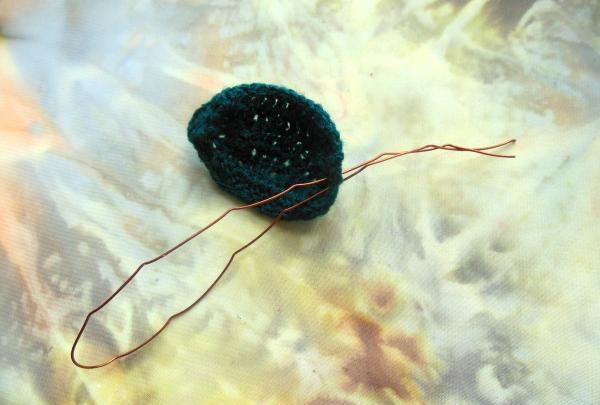
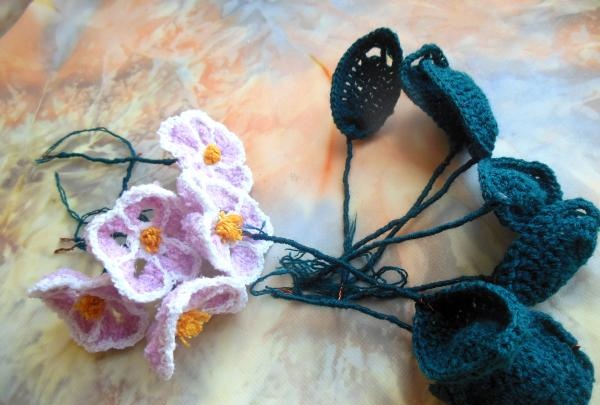
We place them in the center of the pot, and place the leaves along the outer edge.
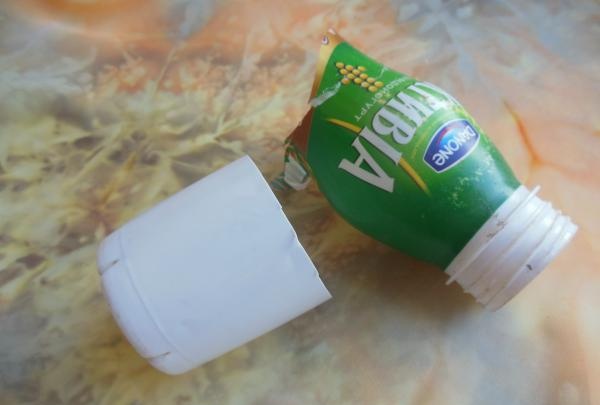
Finally, cover the plastic with glue, wrap the sticky surface tightly and evenly with twine, and the pot is ready!
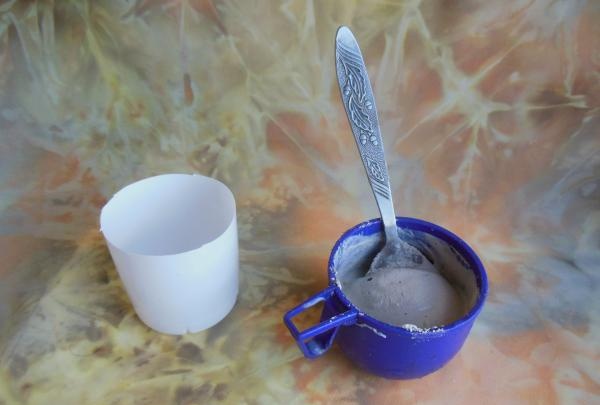
Now a home violet can show off not only on a window where there is a lot of light, but also in any dark corner of your room.
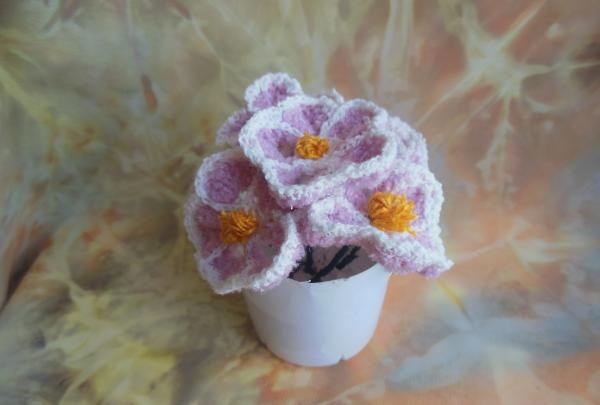
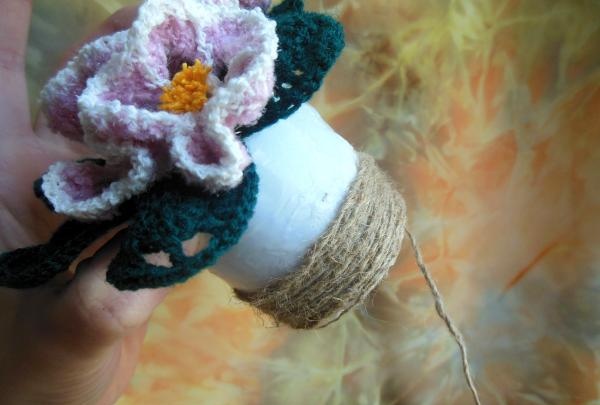
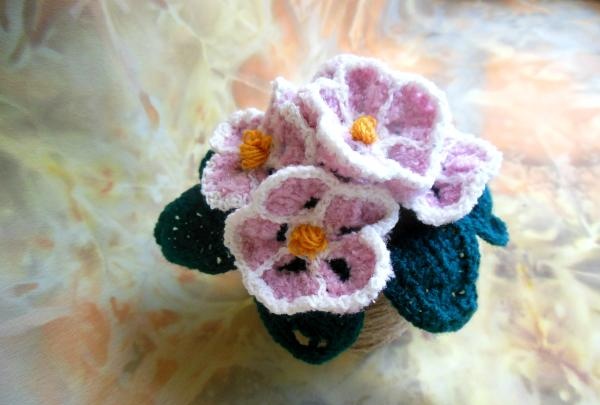
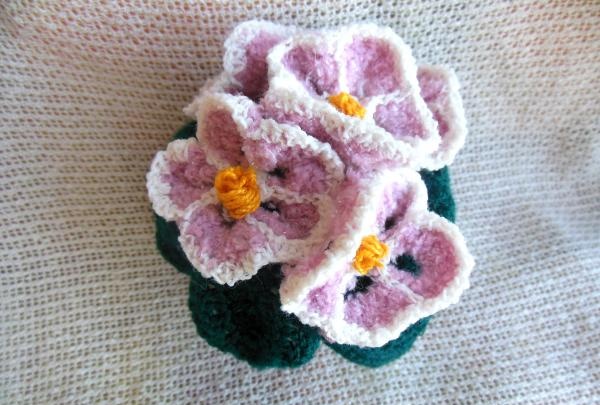

To create flowers you will need pink yarn with pieces of fur or fabric and white bouclé (curly) yarn. The leaves are knitted from ordinary even green thread. We knit all the details with a thin crochet hook (1.8-2.0 mm).

We collect 6 white air loops (in. p), which we collect into a ring. Using a white thread, we knit one circular row with single crochets (dc/dc) and include the pink thread in the work.

We use it to create chains from the 10th century. p, which we fasten in every second loop of the white base. There should be a total of 5 petals (half rings).

Then we tie these petals st./s 1 n, thereby giving our flower volume.

We “whiten” its outline with white stitches. n all over the circle and create the same veins between the petals.


For a small pot, 3-5 inflorescences are enough.

We knit the leaves from a regular chain, which we simply tie on all sides. Lateral transitions should be made smooth (do not jump sharply to the top or bottom side), otherwise the leaf will have the shape of a saucer.

It will become even due to the constant increase in the side stitches (where we knit 4 stitches per 1 stitch from one loop at once).
In the second row, we make two small holes at the tip of the leaf using chains of 3 stitches. P.

At the end, we tie the entire sheet with a st. n.

You will need more leaves than flowers. This composition includes 7 green blanks, but there may be more.

Now is the time to get your support materials. This:
• a jar of yoghurt or a small bottle with a flat bottom;
• alabaster;
• copper wire for stems (from 3 mm thick);
• polymer universal glue;
• jute twine;
• a small ball of yellow thread to create the center of the flowers.

We wind a small skein of yellow yarn and fasten it in the middle with a double twist of wire. Then we twist both ends together, making an elastic and stable stem.


We thread this stem with a voluminous yellow end into the flower and completely “green it up”.


We also fasten the sheet to a wire, the ends of which are twisted together again.

Each stem should be wrapped with green thread (as tightly as possible) and always until the very end.

Then you need to prepare a pot to fill it with liquid alabaster and “plant” the flowers.


We place them in the center of the pot, and place the leaves along the outer edge.

Finally, cover the plastic with glue, wrap the sticky surface tightly and evenly with twine, and the pot is ready!

Now a home violet can show off not only on a window where there is a lot of light, but also in any dark corner of your room.




Similar master classes
Particularly interesting
Comments (0)





